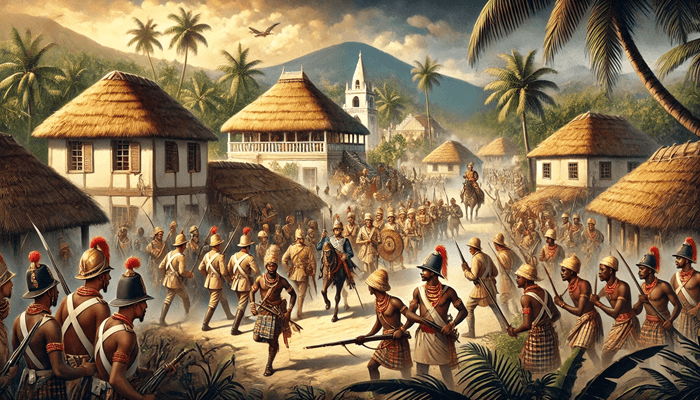Colonial conquest of Yorubaland was one of the great high spots of the history of Nigeria. Yorubaland (in modern-day southwest Nigeria) was one of the most civilised areas of West Africa before European colonisation. It was known for its wide trading networks, advanced political система and rich cultural heritage. But British colonial rule upended the region’s political climate, economy and social fabric.
Yorubaland before colonization
Before British colonial rule Yorubaland was scattered with city-states such as Ife, Oyo, Ibadan, Ijebu and Egba. Each city-state was governed as an autonomous political entity with a monarch (Oba) and a council of chiefs. The rise to dominance of the Oyo Empire with a professional army, a centralised government and vast trading networks from the Atlantic coast to the Sahara was particularly noteworthy.
But by the 1800s, Yorubaland had its own problems. Yoruba wars (1817–1893) and the fall of the Oyo Empire (1817–1892) destabilised the political situation in the area. These wars were fought over trade routes, territory, and the right to the throne — leaving many city-states vulnerable to invasions. As this lawlessness reigned, the British extended their reach beyond Lagos and into the interior.
Empire of the British
Initially, the British maintained trading relations with Yorubaland, especially along the coasts. An area of British interest, though, was the Yoruba settlement of Lagos due to its strategic involvement and position in the transatlantic trade. The British invaded Lagos in 1851 under the declared objectives of suppressing the slave trade and protecting British commercial interests. A decade later, the British formally annexed Lagos as their colony in 1861.
From there, the British increasingly exercised influence in the interior through alliances with local leaders, military expeditions, treaties and their position. Some Yoruba kings were eager to accept British patronage to protect their territories from neighbouring kingdoms; others resumed the fight against invaders.
Taking Yorubaland by force
Turn of the nineteenth century, British grew direct conquest after indirect influence. In this time, several significant campaigns take place:
During the Ijebu Expedition of 1892, the British encountered opposition from the Ijebu Kingdom, which controlled the main, northward routes into the Yoruba interior. The British responded with aggression and defeated the Ijebu. The conquest led to an extended British political and commercial influence in Yorubaland.
The collapse of Oyo had moved the British’s eye onto other strong city-states such as Ibadan after the Ijebu campaign. Some kings signed treaties under duress; others were victims of military conquest. For instance, the Egba people of Abeokuta signed a treaty with the British in 1893, whereby they were protected in exchange for considerable influence.
Finally, by 1900, most of Yorubaland was part of the British protectorate of Southern Nigeria. It was at this point the indigenous peoples’ sovereignty in the area ceased and the British colonial rule was officially instituted.
Impact of the British Conquest
The region was profoundly altered by the conquest of Yorubaland:
1. Political changes
The British established indirect rule using traditional Yoruba chiefs. Despite retaining ceremonial authority, their real power was limited, and they both served the British colonial administrators.
2. A change in economic priorities
The economy of Yorubaland was rearranged to become a more suitable service for the interest of the British. Growing cash crops such as palm oil and cocoa replaced subsistence farming and integrated the region into the global capitalist system. But these changes often upended traditional practices and ways of life.
3. Changes in Culture
Many cultures were introduced to Christianity and Western education by British missionaries. This unique cultural fusion was created as the Yoruba adopted new customs but still maintained their previous religious rituals and beliefs.
4. Security and longevity
Even during British rule, Herbert Macaulay and other Yoruba intellectuals and leaders resisted colonial rule. They were at the forefront of the struggle for Nigerian self-determination in the twentieth century.
The conquest of Yorubaland also reflects the overarching dynamics of colonialism in Africa, as external powers exploited existing internal fractures to impose their control. However, the cultural heritage and monumental history of Yorubaland begat an experience that has survived and is influencing the people’s identity. Today, the Yoruba remain a leading cultural, political and economic force in Nigeria, where they are among the nation’s best-known ethnic groups.
